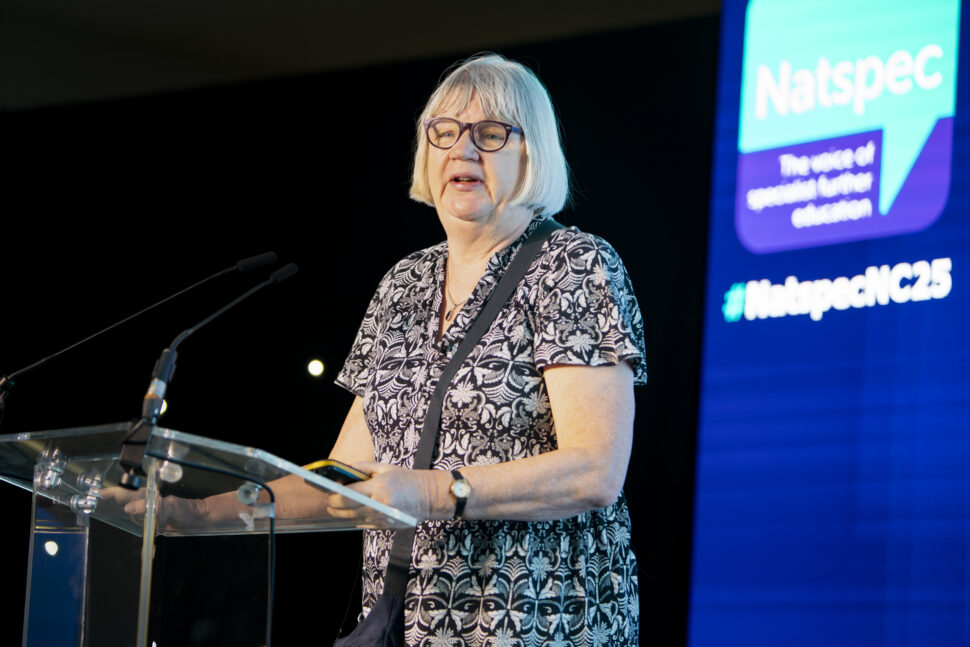A multi-million-pound buyout of 3aaa was sabotaged after a top skills official “spooked” the buyer, Peter Marples told the High Court as the government’s barrister ran through his history of believing public servants “resent” his wealth.
The apprenticeship giant’s co-founder was also put to task about data manipulation accusations that led to his company’s ultimate collapse, describing multiple whistleblower accounts and investigators’ conclusions as “absolute garbage”.
Former Derby County FC joint-owner Peter Marples, 61, spent almost two full days on the witness stand.
He and other family members are seeking damages of at least £37 million plus interest from the government after the collapse of Aspire Achieve Advance (3aaa) in 2018.
Marples, his wife Sarah, son Thomas and his nephew Lee Marples, claim the Department for Education’s (DfE’s) Skills Funding Agency (SFA) “maliciously” foiled the planned sale of 3aaa to private equity firm Trilantic Capital Partners (TLP) in 2016 by refusing to agree to a change in control over 3aaa’s large publicly funded contract.
Non-levy impact
The government announced in 2015 it intended to launch an apprenticeship levy in April 2017. This would be paid by large employers and have a significant impact on the way apprenticeships in small and medium-sized employers (SMEs) were funded – who were then known as non-levy payers.
James Segan KC, for the DfE, claimed the only reason the 3aaa change of control was refused in December 2016 was because the business plan from TLP was “premised on an assumption” of significant growth of non-levy business.
This was “far too optimistic in view of the impending changes in the funding environment” – namely a proposed initial £5 million cap on non-levy contracts for training providers set to come in from April 2017.
3aaa’s contract at this point was worth £31 million. TLP’s business plan assumed revenue would double between 2016-17 and 2018-19, with 70 per cent of that income coming from non-levy employers, despite the cap.
Marples claimed there would be no impact from the cap on 3aaa in the medium term because the company had £18 million carryover funding, it was ramping up its subcontracting with colleges as well as apprenticeships with large employers, and they operated in the 16 to 18 age group.
No impact would be felt until 2018-19, which was not part of the contract held by 3aaa in 2016 at the point of sale, Marples said.
He added that this was also TLP founding partner Joe Cohen’s view before then SFA chief Peter Lauener “had clearly spooked Mr Cohen by informing him in essence non-levy funding would come to an abrupt end”.
Segan relayed a draft email from Cohen following a meeting with Lauener who said there is a “strong likelihood that there may be no money or at least substantially less money in the SME market over the next few years”.
Segan told Marples: “I suggest to you that was not TLP’s view. They clearly did not think there was no risk to business from the current funding environment.”
Marples replied: “They believed there was risk to the business based on what Mr Launer had told them. Quite clearly Mr Launer spooked them and that is why we are here today.”
He added that his view of no impact “became reality” because the cap was never introduced and non-levy funding did not significantly reduce.
Segan also read out a text exchange between Peter Marples and his operations director after the SFA refused the change of control.
Marples said: “SFA said no, too reliant on SMEs”. After the operations director questioned how this could stop the TLP purchase, Marples explained: “In essence the business plan TLP sent the SFA showed continued growth and reliance on SME funding. The SFA letter says they cannot agree to a change of control TLP with the assumption SME funding will continue.”
The operations director replied: “Oh that makes more sense.”
Segan said this showed “you both understood the reasoning, yes?” Marples explained he was “simply telling [the operations director] on a text what had happened”.
Lauener offered TLP the chance to submit a new business plan and reconsider the change of control, but Cohen pulled out in the New Year.
History of ‘resentment’
Marples’ witness statement said he “felt certain”, as far back as the 1990s during his time at KPMG, that three senior individuals within the government’s then Further Education Funding Council (FEFC) “resented the success and dominance of the firm and in particular my leadership”.
This continued following the sale of his first training provider ASSA to Carter & Carter that earned him over £25 million. Around this time Marples felt “it had become personal” with government officials.
He was also part of a consortium that bought Derby County FC which “didn’t help with my reputation” with the then named Learning and Skills Council, partly because his wife flew and owned a helicopter, Marples said. He later sold his stake in Derby County FC for a “successful” sum.
Segan said: “By this point, nearly twenty years ago, your own wealth was already in the tens of millions?”
“Yes, but then I had a divorce”, replied Mr Marples.
“You are saying, as I understand it that, the SFA had a personal dislike for you because you’d made a substantial amount of money from the sale of ASSA?”, asked Segan.
“Correct”, answered Marples.
Segan said: “I assume that is because you assume public officials – as we’ve seen on two previous occasions – must resent you for your wealth?”
“There is evidence to support my conclusion”, replied the apprenticeships tycoon.
Defence rejects ‘malice’
Despite perceived hostility over his wealth as a private sector boss, Marples accepted that the size of 3aaa’s public funding “grew significantly” from 2012 after being awarded its first direct contract by the SFA – reaching £31 million by 2016.
Funding from the SFA earned 3aaa a gross profit margin of 49 per cent in 2014, and the aim was to increase this margin to 78 per cent.
The court heard of sales presentations for 3aaa included that talked of “excellent revenue and profit visibility protected by high barriers to entry” and described the company as a “cash cow”.
In early 2016, the SFA commissioned KPMG to investigate 3aaa’s data submissions. The report, code-named Project Vanilla, said investigators “have not identified any evidence of deliberate circumvention of funding rules by the provider”, but there were dozens of overclaims which resulted in £300,000 clawback.
During the investigation, the SFA suspended payments to 3aaa.
The court heard that within weeks 3aaa was warning it was running out of cash.
3aaa’s board decided to put the company into administration two months after suspension of payments.
After hearing of this decision, Lauener did what Segan described as a “favour” by expediting a £3.6 million payment to keep the company afloat. Marples said this decision left him in “tears”.
Segan pointed out this was in the same financial year that Marples had taken £2.4 million out of the business. Marples claimed this amount was owed to him by 3aaa and he invested it into property and therefore did not have it to hand to save the business. Marples said he put in what he could, which was £200,000.
Segan said Marples was “already a very wealthy man” and referred to his “nine-bedroom house in Florida” and “Grade 2 listed” Manor House in Derbyshire.
“You could in fact have solved the company’s problems that you say you were in tears about”, Segan said.
Marples replied: “You are incorrect – I didn’t, if I had I would have done.”
Shares were not ‘worthless’
The Marples family claims that their shares were rendered “worthless and unsaleable” after the December 2016 change of control refusal.
Segan said this was “absurd” to suggest, considering there were talks of another buyer purchasing 3aaa later in 2017. This sale did not materialise. Segan added the “real cause of any diminution of your shares” followed in 2018 when the government investigated 3aaa again, which led to termination and liquidation of the company.
Marples rejected this.
Manipulation ‘garbage’
The 2018 investigation, which led to 3aaa’s closure and resulted in a referral to the police but no further action, was discussed at length by Segan.
He said the ESFA, which was under new CEO leadership at this point after Lauener had retired, found manipulated data to enhance qualification achievement rates (QARs), retained over £1 million in Apprenticeship Grant for Employers (AGE) funding that should have been paid to employers, and there had been changes to planned end dates to demonstrate how data was being altered and manipulated to trigger ESFA funding.
Marples said dodgy data claims “absolutely did not happen”, adding that there may have “human error” but no manipulation.
Segan listed off numerous whistleblowers from inside 3aaa who came forward with accusations of data manipulation.
This included 3aaa’s chief operating officer telling the ESFA that he recalls a meeting with “large numbers of staff” the Friday prior to the 2018 Ofsted inspection where Peter Marples said “we must strive for ‘outstanding’”.
In reference to this and “in front of everybody, Peter Marples told Lee Marples he should work on the QAR that weekend to make it ‘outstanding’”. Lee Marples’ alleged response was “leave it with me”.
Peter Marples said this was “absolute garbage”.
An explanation for the data errors identified in the 2018 investigation was provided to the ESFA by Peter Marples, other co-founder Di McEvoy-Robinson and Lee Marples.
Derek Mapp, ex-chair of 3aaa, who Marples described as a bully during his cross-examination, later told the ESFA that once Peter Marples and Di McEvoy-Robinson resigned, he undertook a review of 3aaa’s response and “decided the quality and substance was not appropriate”.
The new management of 3aaa also claimed “it is clear the anomalies have existed well before 2016-17 although they are similar in nature”.
Segan also used his cross-examination to bring up allegations of data manipulation at Peter Marples’ former training provider, ASSA.
Marples drafted expert’s evidence
Segan ended his cross-examination by bringing to light a “matter of the utmost seriousness”.
He said Peter Marples personally and directly drafted all 150 “purported” contributions of the claimants’ accounting expert, who was a Mr Vivian Cohen, to the first draft of the experts’ joint statement.
This included lengthy passages of purported opinions of Cohen “on matters about which Mr Cohen accepts he knows nothing, and yet Mr Cohen then adopted those contributions as his own”.
Segan’s documents state that the “draft speaks for itself: the position is as fundamental and far-reaching as it is unacceptable. It undermines, quite inevitably, any confidence in Mr Cohen’s report as his own independent analysis”.
Marples said he had “no intention to interfere in the joint statement or put words into the mouth of Mr Cohen”.
The defence told the court that preparation of the experts’ joint statement “must not be influenced by the instructing parties, and that any substantive involvement by the parties or their representatives in that process is a very serious breach”.
The trial continues.



